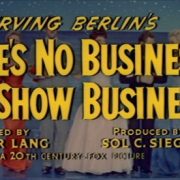Technology has progressed significantly in the last few decades, and it opened up new opportunities for actors both on screen and behind it. Particularly video gaming and animation industry has greatly expanded. And it’s not just big studios cranking out their products — due to the ease of access these days, small independent video game developers and animation studios also require good voice-over acting talent for their new projects.
However, a lot of budding actors seeking work on stage and/or screen make a crucially poor judgement of how competitive the voice-over acting field is. In short, it is very competitive, mostly because people — not just actors alone — view this field as something that anybody can do. Unfortunately — no matter how Jack Black sees it — that is not the case for non-celebrity voice-over actors.
A Career in Voice-Over Acting: Part 1
Years ago, voice-over used to be all about the definition of your voice. Masculine and confident, feminine and delicate — that was enough. These days the situation has permanently changed, and this industry is not so much about the voice anymore; it’s about actually acting and engaging your voice-over acting skills (and you better have those skills if you want to succeed here). No newcomer can just come in with a unique voice and do it, it doesn’t work this way any longer. Everybody needs training!
Aside from the fact that it isn’t as easy to start in voice-over, there are another few obstacles waiting behind the corner. Since about 5-6 years ago, a good chunk of celebrity actors have started doing voice-over on a yearly basis. They always manage to squeeze in a feature animation film or a triple-A video game somewhere between their blockbuster movies.
Furthermore, since voice actors aren’t visible and their voice changes slightly with every character, it’s more difficult for the audience to get tired of them, which means one voice actor can do five times more gigs than they would be able to do for the camera. They also don’t take up as much time as filming or a play does, and if the offers are on the table, doing 5 to 10 projects of different sizes a year for a famous hardworking voice actor will not be an issue.
But, after all this reality check, keep in mind that there are still opportunities for aspiring voice-over acting talent, and if you’re one of them, you just need some good advice on how to approach this competitive but very rewarding career in voice-over.
Voice-Over Acting Audio Demo
Unless you’re a known name within the industry or a huge celebrity, nobody is going to hire you for any voice work without hearing your voice-over demo first. Just like film/TV and stage actors have headshots and acting CV/resumes to show off, the number one thing for voice-over actors is their audio demo. Even if an aspiring voice actor doesn’t have a single voice-over acting credit, there is still a good chance they are going to be called in based on what the casting director hears in presented material.
It is crucial for the demo to be professionally made; it cannot be something you have recorded with your laptop microphone and put together with Movie Maker. To have a successful career, a voice actor — like any other struggling performer — must invest first to raise the chance of being hired. Spend a good amount of time looking on the Internet for the best deal where somebody can make you a professional demo out of the recordings you already have. If you don’t have any, they will help you with that, too (for additional charge, of course).
What should the demo look like? Talent agents love a short one, no more than a minute or a minute and a half tops, and made up of different quality parts to show off your range of voice-over acting. Make it up from 5-7 bits, and have them transition smoothly. This will show variety to your future agent or a casting director. Some agents/casting directors might request a longer demo on occasion, so if you’re in a position to provide that, the better you’ll come off. Stay away from any additional sounds, fade ins and outs.
When recording your voice-over demo, avoid sounding similar in every bit. Also, try not to forget about the energy that you must put into there — it has to grab the attention of the person listening to your voice. Remember, it will be heard by thousands and maybe millions of people (depending on the gig), and that is a number one concern on a casting director’s mind, so it should be yours, too.
Stay within your range. Just like there is “playing age” for actors on stage, screen and TV, there is also a range that voice-over actors must stay with. For example, if you’re 18 and sound young, you should not be doing a recording for Barclays about pension, and vice versa — if you’re 70, you probably should avoid recording an ad about the new video games console coming out. Unless, of course, there’s an idea behind that, possibly with a hint of comedy and aimed towards a specific project you’re submitting to.
Voice-Over Acting Training
The importance of training. Some classes provide you with a voice-over demo after you finish. While it might be for an additional charge, it is still usually a better price than going privately. Plus, you’ll get a lot of tips and advice while recording your voice(s) throughout your voice-over acting class. Weight your options and check which deal comes out to work best for you; after all, the pursuit of voice-over career will cost you a little down the road, but hopefully you’ll be booking paid gigs at the same time.
Remember that taking a voice-over class is vitally important. For an untrained eye (voice?) it might seem there isn’t much to learn when you have a good voice, but you’ll be surprised how much detail goes into voice-over acting. Additionally, your chances of getting called in are going to be much greater when you have a known voice-over class mentioned on your CV/resume. While learning all about the craft, you will also be coached on how to best record your future voice-over demo, which is another great selling point.
The perks of pursuing voice-over acting compared to film/stage/TV acting is that you might be able to avoid spending as much cash down the road and probably have more time to devote to your future career. You also don’t have to get and send your headshots when applying for voice work; appearance is absolutely irrelevant. Some voice actors still do, they believe it will make the casting director see (hear?) them that way. However, it’s a gamble, as you never know if the casting director will like what he/she saw. Better to avoid this.
Voice-over acting is an amazing job to pursue and build a career in, but you have to put in the work. While it’s possible to go after screen, stage and voice-over at the same time (if you do not require any survival job to fund years of struggle), it is not going to be an easy journey. The general advice is to pick one path, and once you have at least some minor success in that field, start looking a little to the side.
In our second part on a career in voice-over acting we’re talking about best locations for pursuing this dream, voice-over agents, how this process works and what else it takes to become successful in this very competitive field of voice-over work.
 To receive more advice on acting business and craft from the acting community, please subscribe to our newsletter and join us on Facebook, Google+ and Twitter.
To receive more advice on acting business and craft from the acting community, please subscribe to our newsletter and join us on Facebook, Google+ and Twitter.





